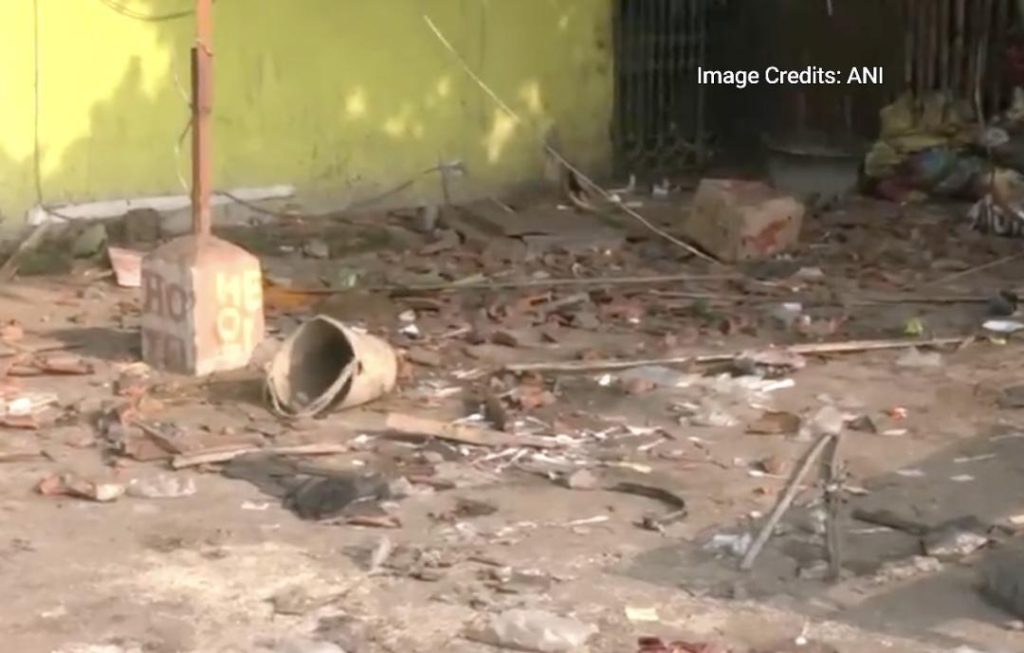
Title: 5,000 Disrupt Services & Pelt Stones at Bengal Railway Station during Protest against Waqf Act
West Bengal has been witnessing intense protests against the Waqf Act, with the latest incident taking place at the Dhulianganga railway station. On Friday, nearly 5,000 people gathered at the station and disrupted train services, leading to the delay of the Kamakhya-Puri Express. The protesters, who were demonstrating against the Waqf Act, also resorted to stone pelting, causing damage to property and disrupting normal functioning.
According to eyewitnesses, the mob gathered at the station around 1 pm and started throwing stones at the railway authorities. The protesters, who were mainly from the Muslim community, were upset about the government’s decision to implement the Waqf Act, which aims to regulate and manage the Waqf properties across the country.
The act has been a subject of controversy, with many Muslim organizations and leaders opposing it, claiming that it would lead to the takeover of Waqf properties by the government and undermine the autonomy of the Waqf boards. The protesters, who were demanding the withdrawal of the act, were determined to make their voices heard, and their actions at the railway station were a manifestation of their frustration and anger.
The disruption caused by the protesters was significant, with the Kamakhya-Puri Express being severely affected. The train, which was scheduled to depart from Dhulianganga station at 2 pm, was delayed by several hours due to the protests. The passengers, who were stranded at the station, were understandably upset and frustrated, and many of them took to social media to express their grievances.
The Eastern Railways, which operates the railway station, released a statement condemning the violent protests and expressing regret over the inconvenience caused to the passengers. The statement said that the railway authorities had made every effort to maintain peace and order at the station, but the protesters had refused to listen.
“We deeply regret the inconvenience caused to the passengers due to the disruption caused by the protesters,” the statement said. “We condemn the violent protests and appeal to the protesters to maintain peace and order.”
The protests against the Waqf Act are not new, and they have been going on for several weeks now. The controversy surrounding the act has been a subject of national debate, with many experts and analysts weighing in on the issue. While some have argued that the act is necessary to regulate the Waqf properties, others have claimed that it is an attempt to undermine the autonomy of the Waqf boards.
The protests at the Dhulianganga railway station are a manifestation of the growing discontent among the Muslim community in West Bengal, who feel that the government is not listening to their concerns. The community has been demanding greater representation and participation in the decision-making process, and the protests are a way of making their voices heard.
In conclusion, the protests at the Dhulianganga railway station are a sign of the growing discontent among the Muslim community in West Bengal. The controversy surrounding the Waqf Act has been a subject of national debate, and the protests are a manifestation of the community’s frustration and anger. While the government has been accused of not listening to the community’s concerns, the protesters have been determined to make their voices heard.
News Source:
https://x.com/ANI/status/1910911058903990608






